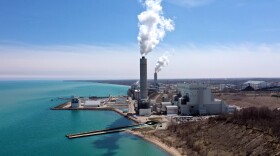In December of 1984, a pesticide plant owned by Union Carbide leaked poisonous gas and chemicals into the environment in and around Bhopal, India. The Indian government’s figures show the disaster killed more than 3,000 people and injured more than 500,000.
Its effects continue to be felt in the region and around the world. Back in 2014, a Milwaukee area high school student started an organization to assist the people still affected by the Bhopal tragedy. Megan Dogra, now a senior at the University School of Milwaukee, continues to lead the organization she created, called Assist Bhopal.
"Due to disputes between the Indian and American government, that factory was never taken down and the surrounding area was never cleaned up. So to this day, there are still piles of toxic chemicals and waste that lie there and they seep through into the soil, which contaminates the groundwater eventually," says Dogbra.

Bhopal is a landlocked area, which means the chemicals from the explosion continue to circulate throughout the area and into the drinking water. As a result of the dispute, the burned out shell of the Union Carbide factory still sits in the center of town and the surrounding area is host to a large shanty town, where residents still deal with the aftermath of the explosion.
"The soil that surrounds the factory currently has 561 times the pesticide concentration in comparison to the accepted Indian standard," she explains. "In addition to that, there are also hazardous chemicals such as mercury, arsenic, lead, and chromium, which are neurotoxins, gastrointestinal toxins."
While almost everyone in Bhopal continues to feel the residual effects of the disaster, Dogra says the people feeling the greatest impact weren't even alive when the explosion happened.
"The children of the survivors are primarily the victims of this tragedy now, as they're born with congenital birth defects due to the gas explosion," she says.
Dogra produced a short film about the disaster, also called Assist Bhopal. Although she will soon be graduating from high school, she plans to continue her work with the organization and hopes to open a new chapter at her college.
Assist Bhopal will host its annual dinner Friday, January 27, at 7:00 at the Bollywood Grill in Milwaukee.
https://www.youtube.com/watch?v=k-JJexft9Lk





